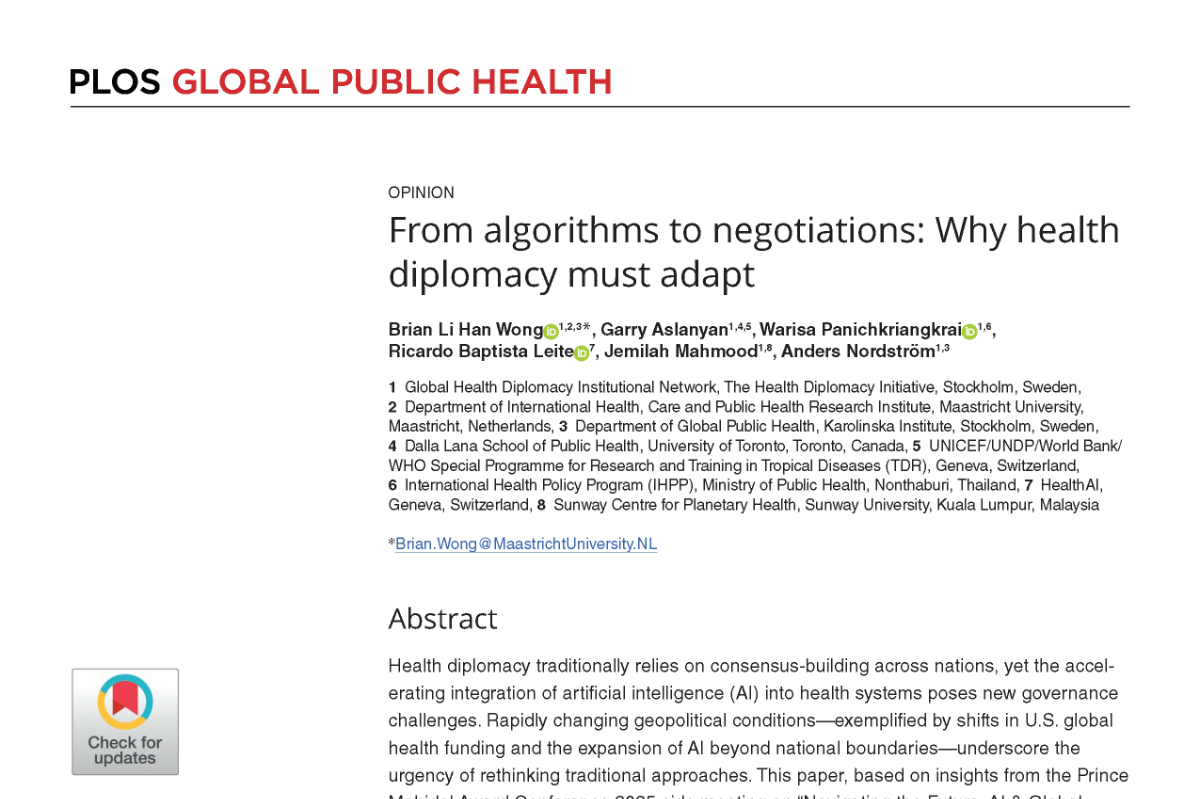From algorithms to negotiations: Why health diplomacy must adapt

Global Health
Health diplomacy traditionally relies on consensus-building across nations, yet the accelerating integration of artificial intelligence (AI) into health systems poses new governance challenges. Rapidly changing geopolitical conditions—exemplified by shifts in U.S. global health funding and the expansion of AI beyond national boundaries—underscore the urgency of rethinking traditional approaches. This paper, based on insights from the Prince Mahidol Award Conference 2025 side meeting on “Navigating the Future: AI & Global Health Diplomacy,” examines how AI can reshape the practice of health diplomacy, both empowering and unsettling global health objectives. We first explore the promise of AI in enhancing disease surveillance, resource allocation, and progress toward universal health coverage. However, inadequate governance can exacerbate inequalities, particularly if AI remains in the hands of profit-focused enterprises or if digital divides persist. Health diplomacy, therefore, must expand its purview to include technical literacy, data ethics, and robust regulatory frameworks that safeguard equity and transparency in AI design and deployment. To illustrate these dynamics, we emphasise the interplay of social, political, commercial, and digital determinants of health, each feeding into AI-driven innovations. Strong diplomatic engagement is critical to ensuring that AI becomes a tool for mutual benefit rather than a catalyst for further fragmentation. Effective policies must integrate environmental sustainability considerations alongside cross-sector collaboration. We conclude that, although AI cannot replace the vital human element of negotiation and trust-building, it can substantially enhance global health outcomes when governed ethically and inclusively. The future of health diplomacy, shaped by AI, requires agile adaptation and unified strategies to preserve equity and planetary well-being.
LINK: https://journals.plos.org/globalpublichealth/article?id=10.1371/journal.pgph.0004488
